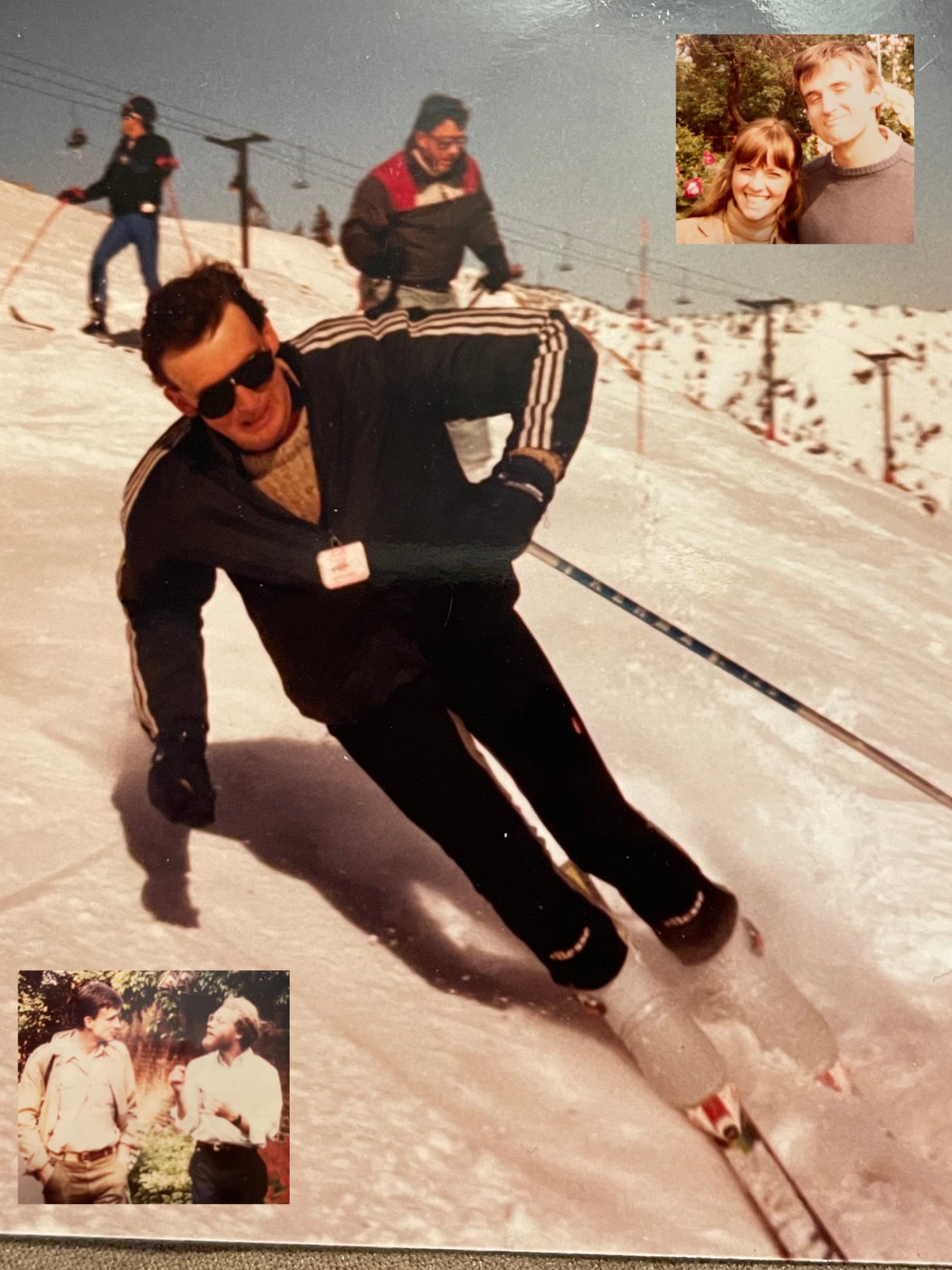MARCH 25, 2022 – I must provide this sequel to my initial sojourn in Prague . . .
As noted in my 3/22/22 post, I visited Pavel and Magda twice more—alone in 1982 and again in 1985 with my wife and her parents. By the time of the 1985 sojourn, our Czech friends had added a son, Adam.
In early 1988, Pavel came to the U.S. for extended work-study in cardio-surgery at the acclaimed Ochsner Clinic in Louisiana. I made sure that we skied together (Utah) and visited our extended families (my spouse’s and mine) “up at the lake” (Northwest WI).
I remember a conversation we had while canoeing on Grindstone Lake. Glasnost and Perestroika were in full swing in the USSR, which meant a loosening of the Soviet grip on its satellites, including the ČSSR (“Czechoslovak Soviet Socialist Republic”). I asked Pavel if “this guy Gorbachev” wasn’t different from all his predecessors.
Pavel had lived too long, been disappointed too many times—most notably by the Soviets’ 1968 invasion squelching Dubcek’s reforms and the “Prague Spring.” “All Russian leaders are the same,” he said. “They’ll never change. Not in my lifetime, not in my son’s lifetime, not in my grandchildren’s lifetimes.”
In November 1989 the Berlin Wall came down, and the Czechs responded with their Velvet Revolution. I called Pavel the last week of December, just after Nicolae Ceausescu, tyrant of Romania, was deposed. The dominoes were falling faster than anyone could grasp. Pavel said it was like winning the lottery—something barely imaginable and never to be experienced.
A few years later, Adam visited us for a week. He was a delight, and as a young teenager and sports fan, he used basketball to connect with our younger, sports fan-sons. I’ll never forget a ride in the car—my wife and I up front; Adam and our two sons in back. Our visitor’s English was fluent, but far more astonishing was his fluency in contemporary, American popular culture. He conversed as if he were a kid from down the block. I thought back to Pavel’s sad remark in 1981—how it would be irresponsible to bring a child into the Communist world. Now everything had changed. Pavel was free in his homeland, and his son, traveling free in America, was a guest of American friends, riding in the backseat of an American SUV—speaking American English, talking American sports.
When I drove Adam to the airport on the day of his departure, I gave him a little talk about the danger of “American glitter.”
“Your adaptation to America—to our language, our ways, our idiosyncrasies—is impressive,” I said, “but don’t let the allure of this country’s influences diminish your Czech roots. It’s fine to be wowed by American NBA stars, Adam, but never, ever let ‘American stars’ eclipse your own heroes—people like Dvořák, Hašek, Beneš, Zátopek, Havel and members of your own family. Don’t lose your beautiful language, don’t forget your history, don’t let go of your heritage.” Adam assured me he wouldn’t.
(Remember to subscribe to this blog and receive notifications of new posts by email.)
© 2022 by Eric Nilsson
